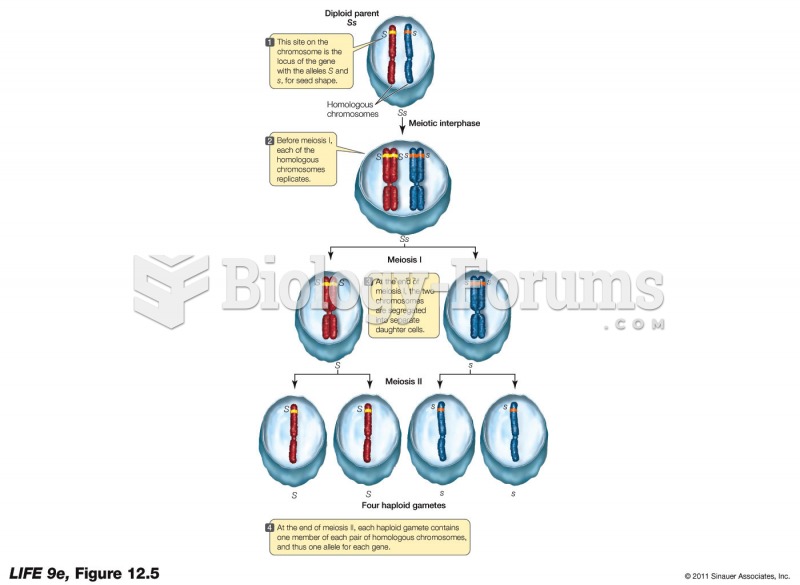|
|
|
An identified risk factor for osteoporosis is the intake of excessive amounts of vitamin A. Dietary intake of approximately double the recommended daily amount of vitamin A, by women, has been shown to reduce bone mineral density and increase the chances for hip fractures compared with women who consumed the recommended daily amount (or less) of vitamin A.
There are over 65,000 known species of protozoa. About 10,000 species are parasitic.
About 60% of newborn infants in the United States are jaundiced; that is, they look yellow. Kernicterus is a form of brain damage caused by excessive jaundice. When babies begin to be affected by excessive jaundice and begin to have brain damage, they become excessively lethargic.
When blood is deoxygenated and flowing back to the heart through the veins, it is dark reddish-blue in color. Blood in the arteries that is oxygenated and flowing out to the body is bright red. Whereas arterial blood comes out in spurts, venous blood flows.
Aspirin is the most widely used drug in the world. It has even been recognized as such by the Guinness Book of World Records.
 Allen Test: A patent ulnar artery reveals the return of palm perfusion despite radial artery compres
Allen Test: A patent ulnar artery reveals the return of palm perfusion despite radial artery compres
 In 2013, Americans learned that the federal government massively surveys their phone calls and e-mai
In 2013, Americans learned that the federal government massively surveys their phone calls and e-mai





